Apple Ad Rules Send Internet Economy Into Prolonged 'Recession'
This article from Bloomberg may be of interest to subscribers. Here is a section:
A factor that’s gotten less attention, though, is something a bit more arcane, something more specific to the business models that have both enriched some of the world’s biggest tech companies and shaped the way many of us experience the internet. That factor is the iPhone.
In 2021, Apple rolled out what it called App Tracking Transparency. Henceforth, iPhone users had to opt in to certain forms of digital tracking, in particular targeting that involves the sharing of information between different apps.
Social media companies rely heavily on that technique to serve up the targeted ads that are their profit engines. The data they collect can form an ever-more-detailed mosaic of a user and, most importantly, a better sense of what kind of person responds to which types of ads.
Apple presented its anti-tracking policy as a way for people to take control of their information, at a time when lawmakers around the world are championing a similar cause. Ads are intrusive and annoying, and being closely tracked on the internet is creepy. If you are a political dissident or a woman researching abortion in a place where the procedure is illegal, it is terrifying.
At the time, however, Facebook’s parent company Meta saw the change as a serious threat. Social media executives feared that lots of iPhone users would opt out of this kind of app tracking when given the option. Almost two years on, they seem to have been right. Meta estimated that the change cost it $10 billion in 2022, or 9% of its total revenue.
Eric Michael Seufert, an analyst at Mobile Dev Memo, went so far as to call it “the App Tracking Transparency recession.” Seufert argued that the tech companies having the hardest time right now are those most directly affected by Apple’s policy. As he points out, revenue at YouTube, Google's video arm that relies heavily on third-party ad tracking, has lagged the company's search revenue, which is far less reliant on this type of tracking.
Perhaps a more accurate way of thinking about the repercussions of Apple’s walled garden approach, to information on its phones, is it is a bear market on click bait. The ads we are served are chosen based on assumptions the seller makes about our proclivities. That’s a valuable asset and now Apple holds that information for itself.
The challenge for investors is to parse how much of the decline in internet company stocks was driven by this transition and how much by higher rates and tighter liquidity. My sense is the interest rate issue had more of an influence on timing of a revaluation but the App Tracking issue will affect the prospects of recovery.
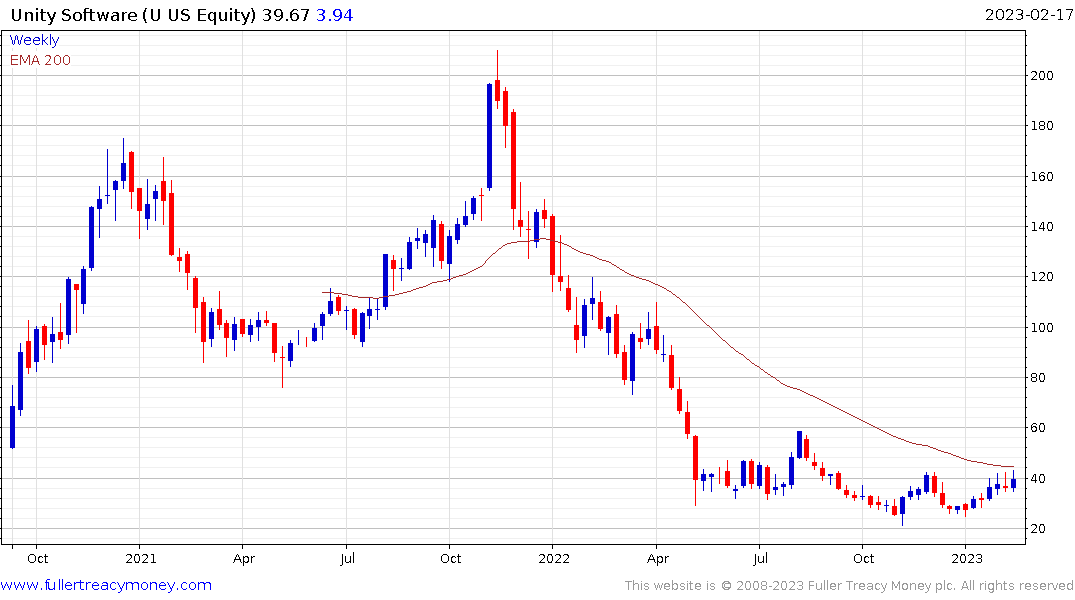 Unity Software provides its game development software in return for also incorporating its advertising delivery mechanism into the games. The share is currently testing the upper side of its base formation.
Unity Software provides its game development software in return for also incorporating its advertising delivery mechanism into the games. The share is currently testing the upper side of its base formation.
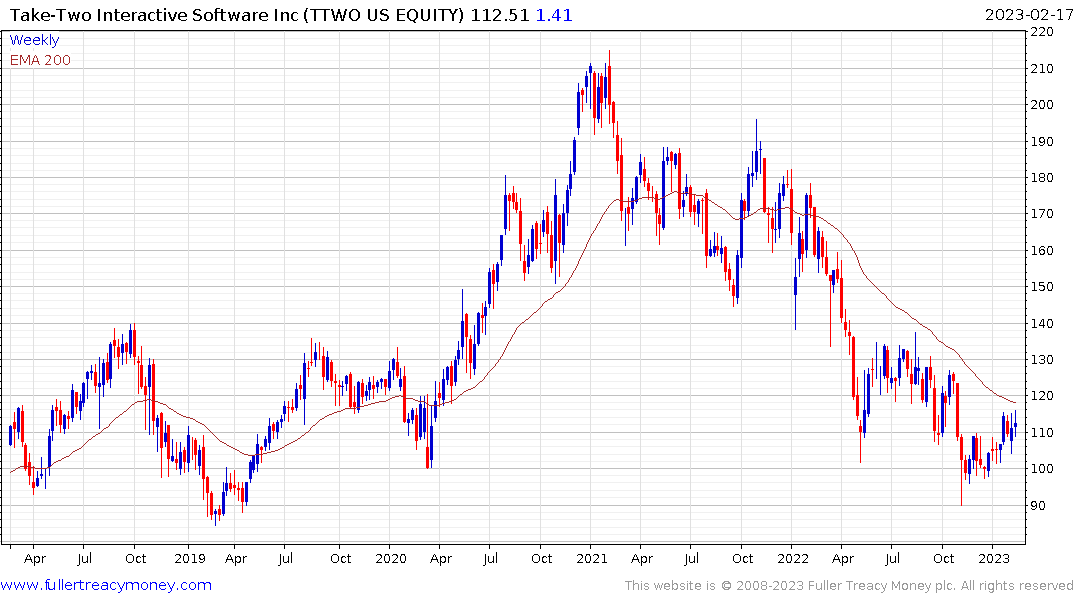 Take-Two Software acquired Zynga last year to boost its position in mobile. The share has steadied of late but remains in a consistent medium-term downtrend.
Take-Two Software acquired Zynga last year to boost its position in mobile. The share has steadied of late but remains in a consistent medium-term downtrend.
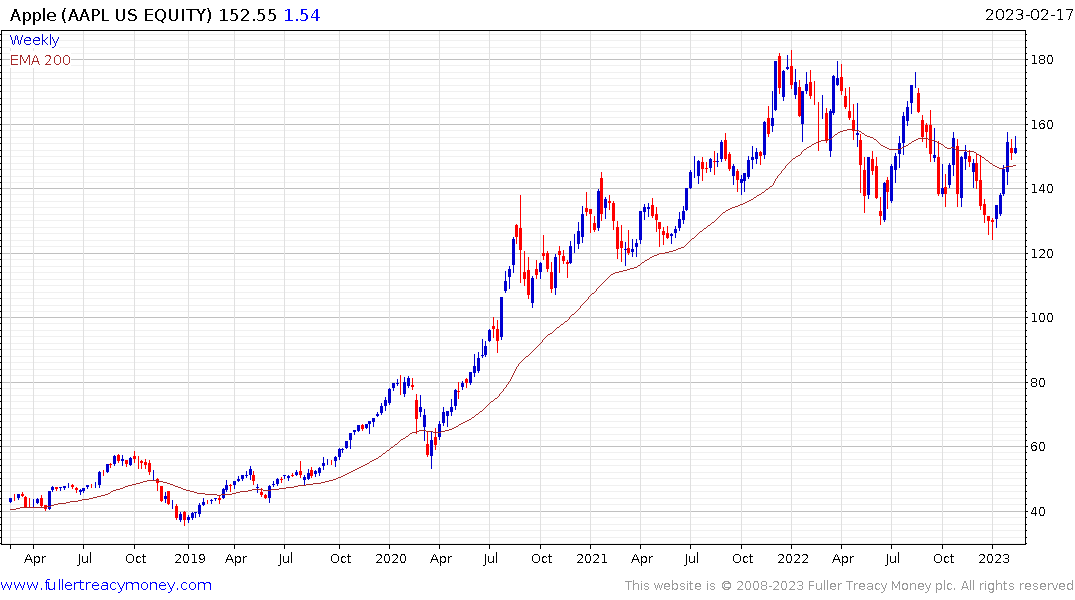 Apple’s advertising business has jumped from 8.5% to 19.9% of revenue over the last seven years. It is central to the aim of monetising the installed base of phones all over the world. The rest of the business remains highly cyclical which is an additional reason for urgency on the plans for diversifying revenue streams.
Apple’s advertising business has jumped from 8.5% to 19.9% of revenue over the last seven years. It is central to the aim of monetising the installed base of phones all over the world. The rest of the business remains highly cyclical which is an additional reason for urgency on the plans for diversifying revenue streams.
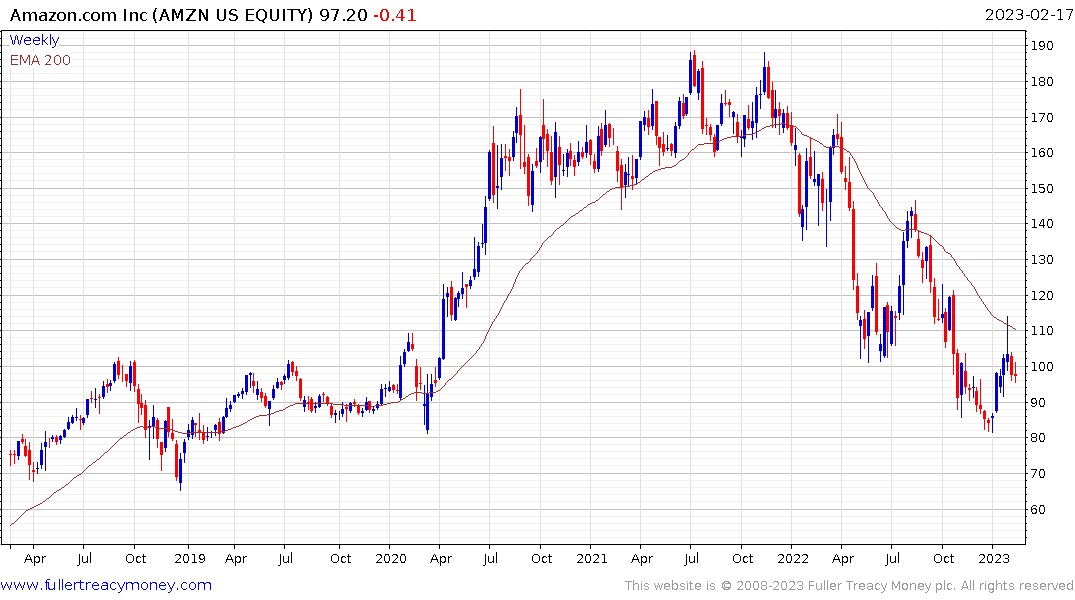 Amazon introduced advertising in 2019 and it now accounts for $37.7 billion in revenue. The net effect is Amazon now takes more than half of every sale made by a private seller on its site. Advertising gives preferential placement to products so it is now essential if one wants to trade successfully on the platform. That’s also why prices have gone up on Amazon. The share remains in a downtrend which suggests consumers are rebelling.
Amazon introduced advertising in 2019 and it now accounts for $37.7 billion in revenue. The net effect is Amazon now takes more than half of every sale made by a private seller on its site. Advertising gives preferential placement to products so it is now essential if one wants to trade successfully on the platform. That’s also why prices have gone up on Amazon. The share remains in a downtrend which suggests consumers are rebelling.
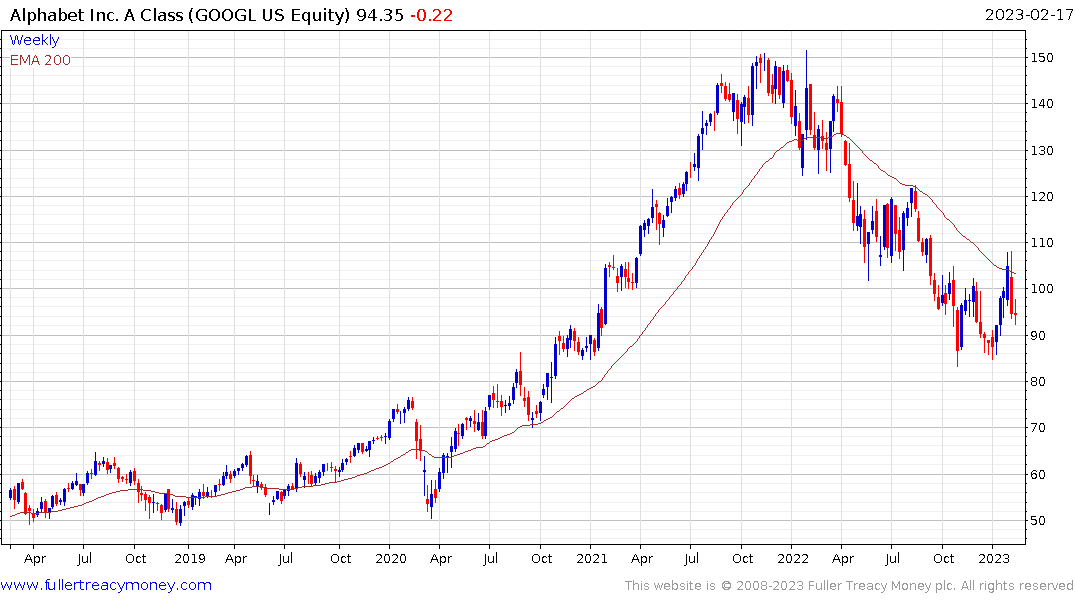 Alphabet posted a large downside weekly key reversal from the region of the 200-day MA two weeks ago. The downtrend is still in place as long as it is trading below $105.
Alphabet posted a large downside weekly key reversal from the region of the 200-day MA two weeks ago. The downtrend is still in place as long as it is trading below $105.


